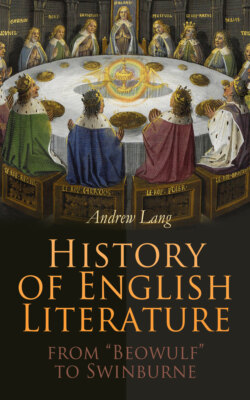Читать книгу History of English Literature from "Beowulf" to Swinburne - Andrew Lang, Robert Kirk - Страница 14
На сайте Литреса книга снята с продажи.
CHAPTER II.
ANGLO-SAXON CHRISTIAN POETRY.
ОглавлениеTable of Contents
When the Anglo-Saxons became Christians (597-655) they took the Gospel, and the rules of the Church, in the North, from the Irish missionaries who, under St. Columba of Ireland, settled in the Isle of Iona: in the South from Roman teachers, such as Theodore of Tarsus, who had studied at Athens, and, in 668 became Archbishop of Canterbury. Both in the South, and North, in Northumberland, great schools were established, in connexion with the monkish settlements: in the monasteries Greek was not unknown, and the language of Rome, Latin, was taught and was used in writing all learned works, and hymns. With the language of Rome, almost dead as a living speech, came knowledge of ancient history, and of the great Roman poets, especially Virgil. The seventh and eighth centuries were thus a new epoch, a century of learning, and of division between the educated and the unlearned. The learned, mainly priests, no longer cared much for making songs and stories about fighting, love, and the adventures of their heathen heroes. They were occupied with the history of Rome and of the old world; and still more with their new religion, and the stories of apostles and saints and Hebrew kings and patriarchs, and with the making of sermons and hymns. Thus the old heathen tales and poems were lost or half forgotten.
